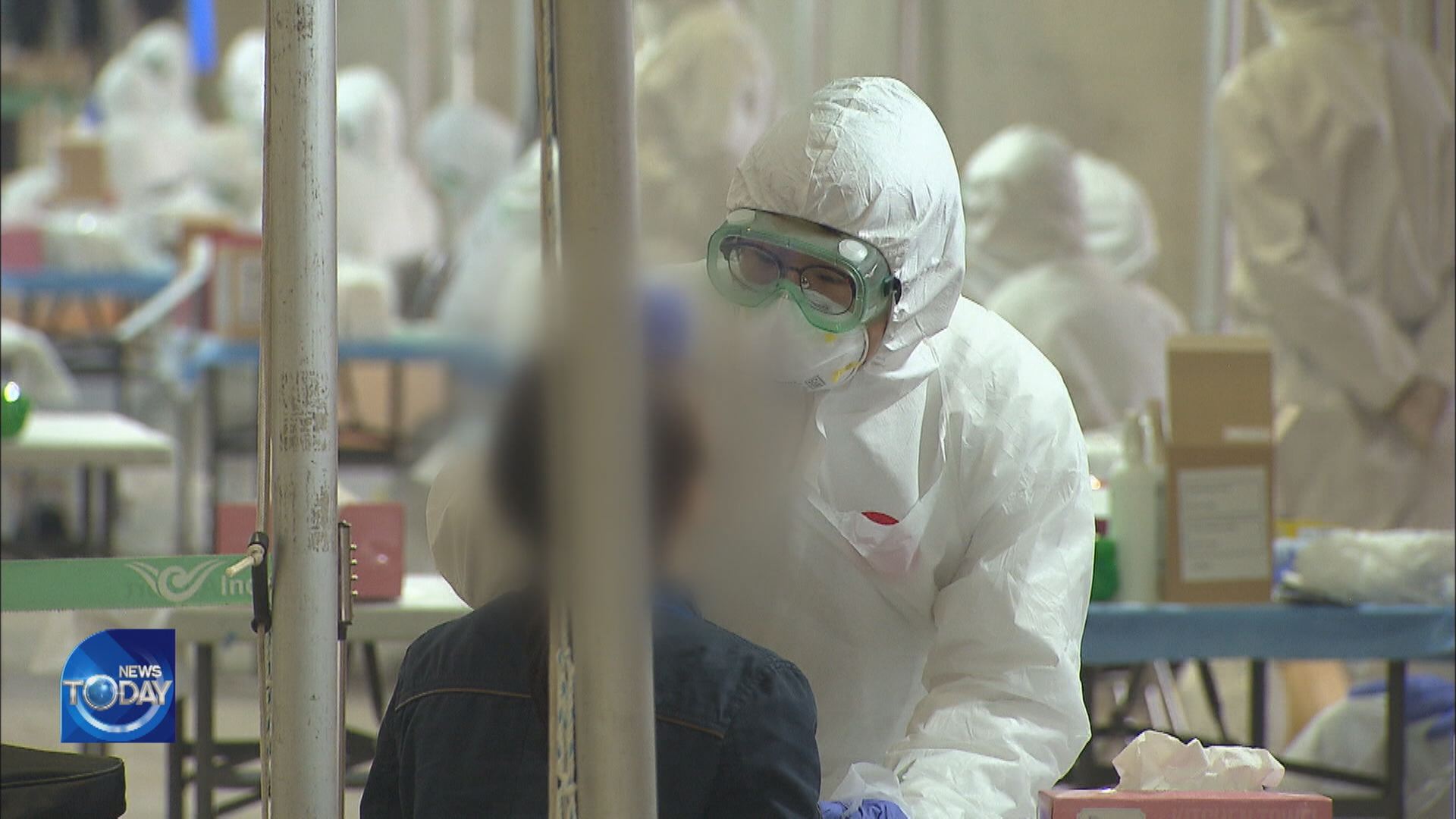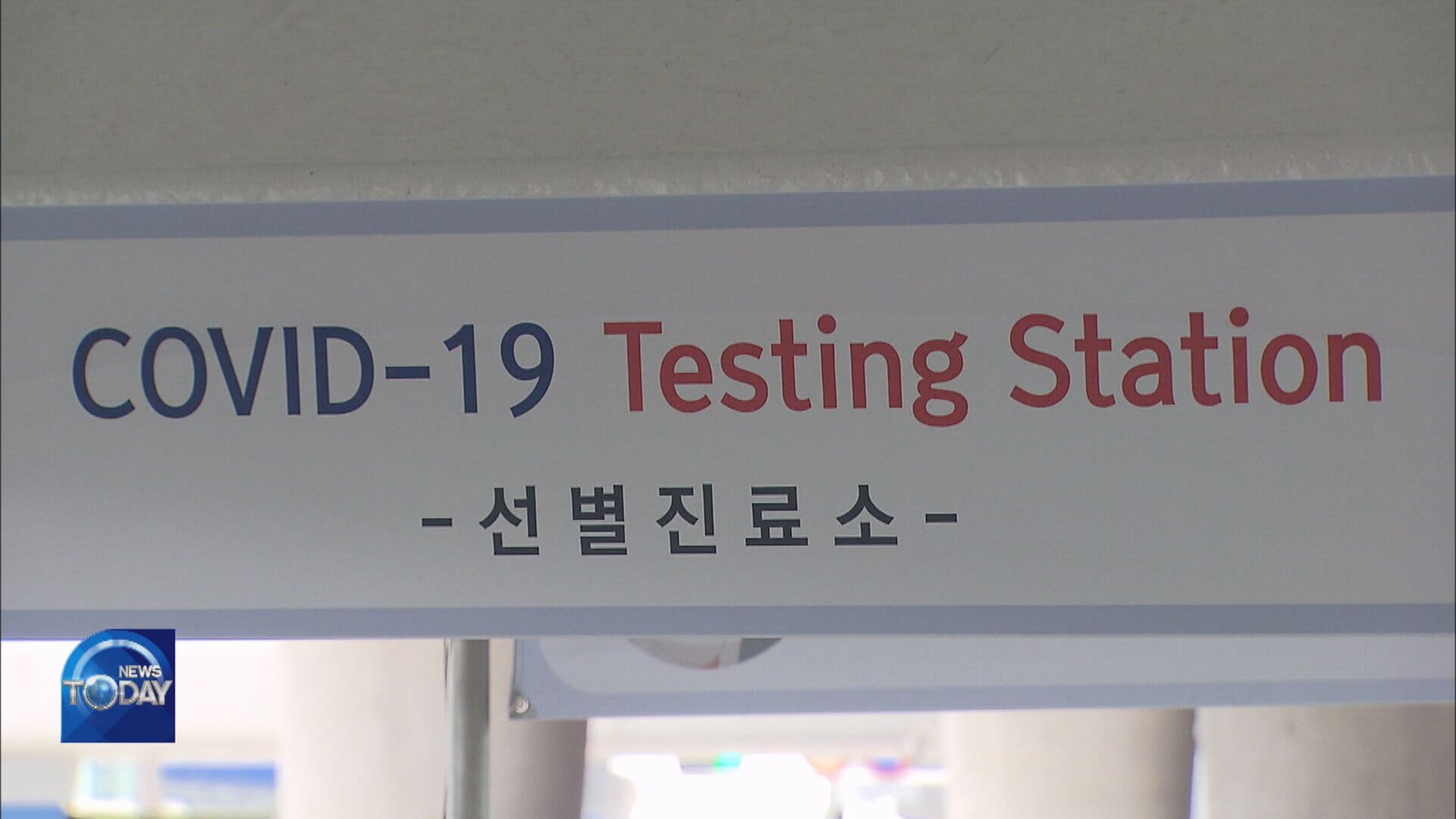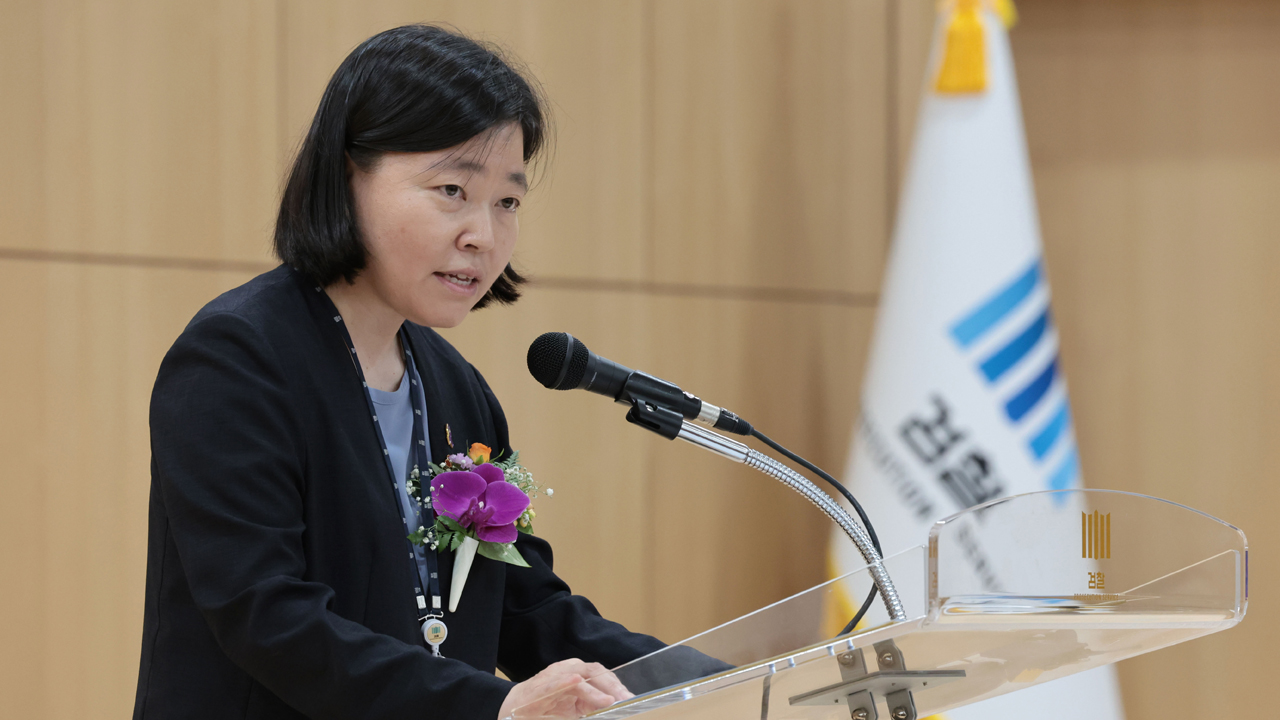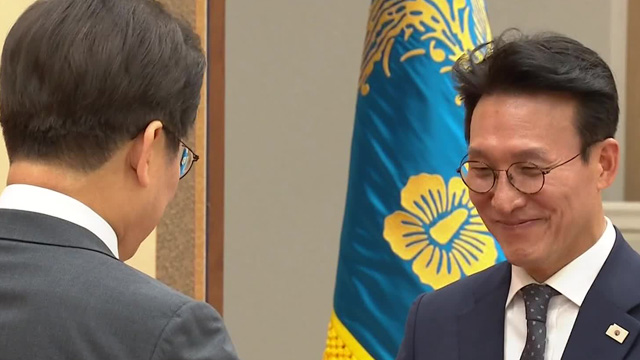MULTIPLE INDIAN VARIANT CASES DETECTED
입력 2021.04.19 (15:35)
수정 2021.04.19 (16:46)
읽어주기 기능은 크롬기반의
브라우저에서만 사용하실 수 있습니다.
[Anchor Lead]
Multiple cases of an Indian variant of COVID-19 have been detected in Korea for the first time. Vaccination for caregivers and flight attendants has begun.
[Pkg]
94 coronavirus cases have been imported from India since January. Two of them were found to have an Indian variant of COVID-19 in March. Seven more cases were added this month. So far three major variants of COVID-19 have been confirmed. The Indian variant is a double mutant. It's unclear how contagious it is and how effective the existing vaccines are against this variant.
[Soundbite] Sohn Young-rae(Central Disaster Management HQs) : "There is little information of the contagiousness and fatality rate of this variant. The WHO has not classified it as a major variant. We are monitoring the situation."
The government is monitoring the situation while stepping up vaccinations. On Monday, immunization of flight attendants as well as caregivers at facilities for the handicapped began. Firefighters, police and military personnel will be able to receive their shots as early as this month. They will be administered doses that were initially allocated to people under 30 years of age, whose vaccinations were postponed due to concerns over side effects. However, a stable supply of vaccines remains an issue. The South Korean government's concerns grow as the U.S. announced plans to provide booster shots to its citizens to maximize efficacy.
[Soundbite] Choi Won-suk(Prof., Korea University Ansan Hospital) : "As we get an exact grasp of how many shots we need, the discrepancy between supply and demand will only continue to grow. It takes pan-governmental and diplomatic efforts to secure vaccines as planned and immunize the public."
Health authorities have extended the interval between the first and second doses to about 12 weeks for some one million people who have already received their first AstraZeneca shot. They took into consideration the fact that a longer interval means higher efficacy as well as the vaccine supply situation. The government says more than 1.5 million people here in the nation have received their first shot so far.
Multiple cases of an Indian variant of COVID-19 have been detected in Korea for the first time. Vaccination for caregivers and flight attendants has begun.
[Pkg]
94 coronavirus cases have been imported from India since January. Two of them were found to have an Indian variant of COVID-19 in March. Seven more cases were added this month. So far three major variants of COVID-19 have been confirmed. The Indian variant is a double mutant. It's unclear how contagious it is and how effective the existing vaccines are against this variant.
[Soundbite] Sohn Young-rae(Central Disaster Management HQs) : "There is little information of the contagiousness and fatality rate of this variant. The WHO has not classified it as a major variant. We are monitoring the situation."
The government is monitoring the situation while stepping up vaccinations. On Monday, immunization of flight attendants as well as caregivers at facilities for the handicapped began. Firefighters, police and military personnel will be able to receive their shots as early as this month. They will be administered doses that were initially allocated to people under 30 years of age, whose vaccinations were postponed due to concerns over side effects. However, a stable supply of vaccines remains an issue. The South Korean government's concerns grow as the U.S. announced plans to provide booster shots to its citizens to maximize efficacy.
[Soundbite] Choi Won-suk(Prof., Korea University Ansan Hospital) : "As we get an exact grasp of how many shots we need, the discrepancy between supply and demand will only continue to grow. It takes pan-governmental and diplomatic efforts to secure vaccines as planned and immunize the public."
Health authorities have extended the interval between the first and second doses to about 12 weeks for some one million people who have already received their first AstraZeneca shot. They took into consideration the fact that a longer interval means higher efficacy as well as the vaccine supply situation. The government says more than 1.5 million people here in the nation have received their first shot so far.
■ 제보하기
▷ 카카오톡 : 'KBS제보' 검색, 채널 추가
▷ 전화 : 02-781-1234, 4444
▷ 이메일 : kbs1234@kbs.co.kr
▷ 유튜브, 네이버, 카카오에서도 KBS뉴스를 구독해주세요!
- MULTIPLE INDIAN VARIANT CASES DETECTED
-
- 입력 2021-04-19 15:35:59
- 수정2021-04-19 16:46:48

[Anchor Lead]
Multiple cases of an Indian variant of COVID-19 have been detected in Korea for the first time. Vaccination for caregivers and flight attendants has begun.
[Pkg]
94 coronavirus cases have been imported from India since January. Two of them were found to have an Indian variant of COVID-19 in March. Seven more cases were added this month. So far three major variants of COVID-19 have been confirmed. The Indian variant is a double mutant. It's unclear how contagious it is and how effective the existing vaccines are against this variant.
[Soundbite] Sohn Young-rae(Central Disaster Management HQs) : "There is little information of the contagiousness and fatality rate of this variant. The WHO has not classified it as a major variant. We are monitoring the situation."
The government is monitoring the situation while stepping up vaccinations. On Monday, immunization of flight attendants as well as caregivers at facilities for the handicapped began. Firefighters, police and military personnel will be able to receive their shots as early as this month. They will be administered doses that were initially allocated to people under 30 years of age, whose vaccinations were postponed due to concerns over side effects. However, a stable supply of vaccines remains an issue. The South Korean government's concerns grow as the U.S. announced plans to provide booster shots to its citizens to maximize efficacy.
[Soundbite] Choi Won-suk(Prof., Korea University Ansan Hospital) : "As we get an exact grasp of how many shots we need, the discrepancy between supply and demand will only continue to grow. It takes pan-governmental and diplomatic efforts to secure vaccines as planned and immunize the public."
Health authorities have extended the interval between the first and second doses to about 12 weeks for some one million people who have already received their first AstraZeneca shot. They took into consideration the fact that a longer interval means higher efficacy as well as the vaccine supply situation. The government says more than 1.5 million people here in the nation have received their first shot so far.
Multiple cases of an Indian variant of COVID-19 have been detected in Korea for the first time. Vaccination for caregivers and flight attendants has begun.
[Pkg]
94 coronavirus cases have been imported from India since January. Two of them were found to have an Indian variant of COVID-19 in March. Seven more cases were added this month. So far three major variants of COVID-19 have been confirmed. The Indian variant is a double mutant. It's unclear how contagious it is and how effective the existing vaccines are against this variant.
[Soundbite] Sohn Young-rae(Central Disaster Management HQs) : "There is little information of the contagiousness and fatality rate of this variant. The WHO has not classified it as a major variant. We are monitoring the situation."
The government is monitoring the situation while stepping up vaccinations. On Monday, immunization of flight attendants as well as caregivers at facilities for the handicapped began. Firefighters, police and military personnel will be able to receive their shots as early as this month. They will be administered doses that were initially allocated to people under 30 years of age, whose vaccinations were postponed due to concerns over side effects. However, a stable supply of vaccines remains an issue. The South Korean government's concerns grow as the U.S. announced plans to provide booster shots to its citizens to maximize efficacy.
[Soundbite] Choi Won-suk(Prof., Korea University Ansan Hospital) : "As we get an exact grasp of how many shots we need, the discrepancy between supply and demand will only continue to grow. It takes pan-governmental and diplomatic efforts to secure vaccines as planned and immunize the public."
Health authorities have extended the interval between the first and second doses to about 12 weeks for some one million people who have already received their first AstraZeneca shot. They took into consideration the fact that a longer interval means higher efficacy as well as the vaccine supply situation. The government says more than 1.5 million people here in the nation have received their first shot so far.
이 기사가 좋으셨다면
-
좋아요
0
-
응원해요
0
-
후속 원해요
0










![[HEADLINE]](https://news.kbs.co.kr/data/news/title_image/newsmp4/news_today/2021/04/19/10_5165902.jpeg)

![[속보] 추경안, 국회 예결소위 통과…민주당 단독 처리](/data/layer/904/2025/07/20250704_YazNaR.jpg)




이 기사에 대한 의견을 남겨주세요.